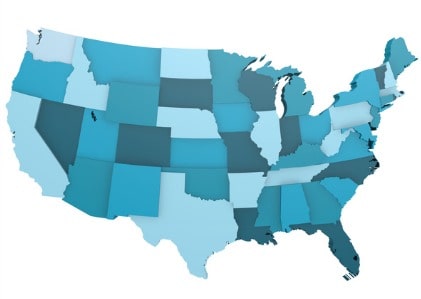HVAC/R Training Programs
As mentioned in the introduction, many of the community college or vocational school programs offering refrigeration training do so along with heating, ventilation, and air-conditioning (HVAC) instruction, through what is known as HVAC/R. So in addition to learning about HVAC in one of these certificate or associate degree programs, here is a sampling of typical refrigeration courses:
- Basic refrigeration
- Commercial refrigeration
- Refrigerator applications
- Advanced air conditioning, refrigeration, and heating
- Refrigeration principles
- Commercial refrigeration startup
- Domestic refrigeration appliances
- Refrigeration fundamentals
Depending on the length and scope of the program, students may need to complete an externship, do lab work, or undergo other hands-on training experiences. Before digging into the refrigeration-specific programs, here are some brief descriptions of featured HVAC/R schools across the US:
- Ferris State University, in Big Rapids, Mich., offers an HVAC/R program that can be completed either as an associate or bachelor’s degree, the latter which requires more time for completion. Basic refrigeration is a component of both programs as is generalized HVAC education.
- Tarrant County College, in Fort Worth, Texas, provides an associate of applied science (AAS) degree with three specialization areas, including one in HVAC refrigeration tech. The degree includes six technical classes essential to completing the program and offers an EPA recovery certification course.
- Kirtland Community College, located in Roscommon, Mich., offers HVAC/R training that can lead to an associate degree. Because the school has a flexible learning environment, students can complete their coursework at their own pace, which is especially convenient for students with full-time jobs or parenting responsibilities.
- Virginia’s Community Colleges, with locations mainly in the eastern US, offers students HVAC/R training that can lead to an associate degree. The program is designed to take 88 weeks to complete and includes an externship, giving students the opportunity to gain hands-on experience.
- Grand Rapids Community College, in Grand Rapids, Mich., is another school offering HVAC/R training. Students have the option of completing either a one-year certificate or a two-year associate’s degree. Students in both programs take hands-on laboratory courses each semester to gain real-world experience.



